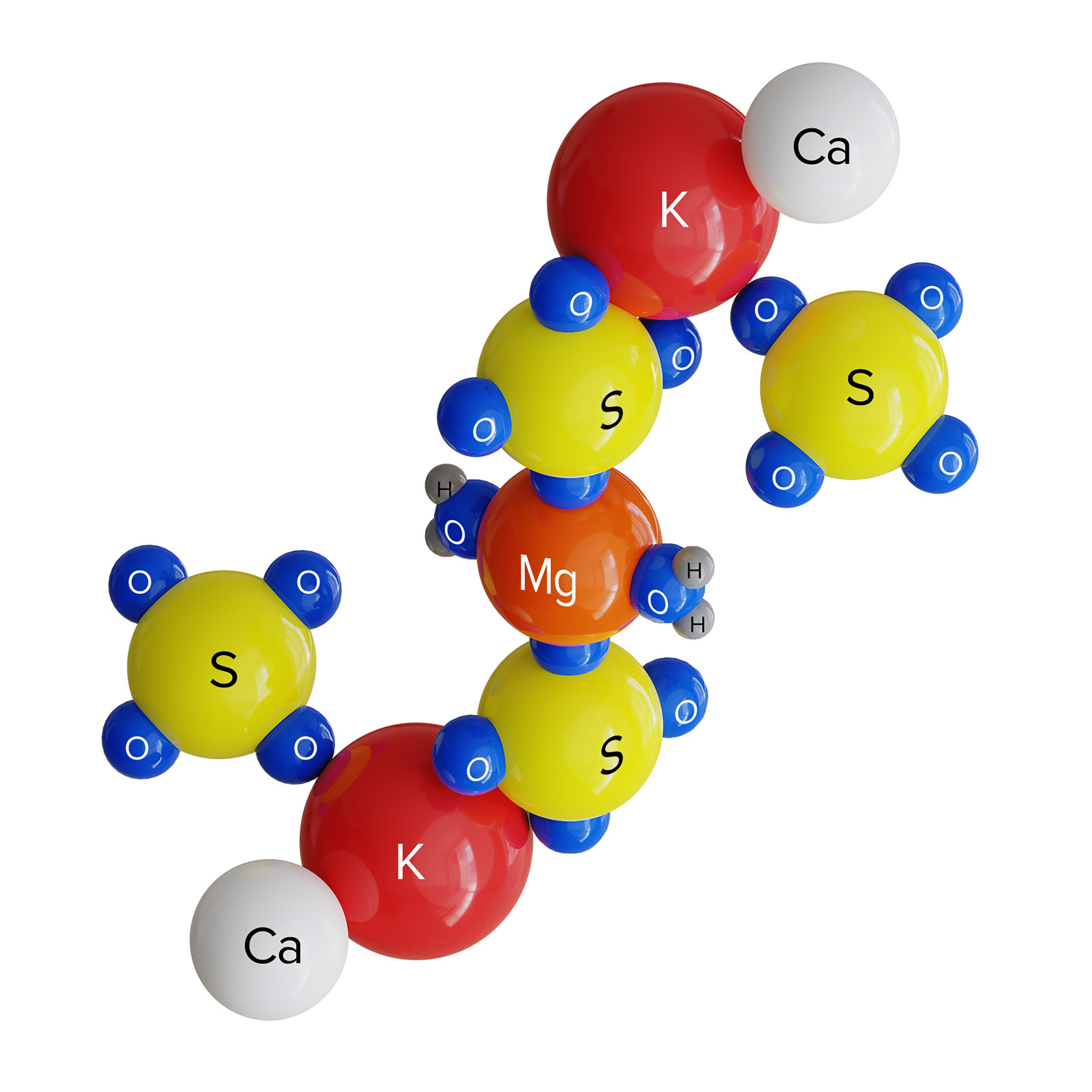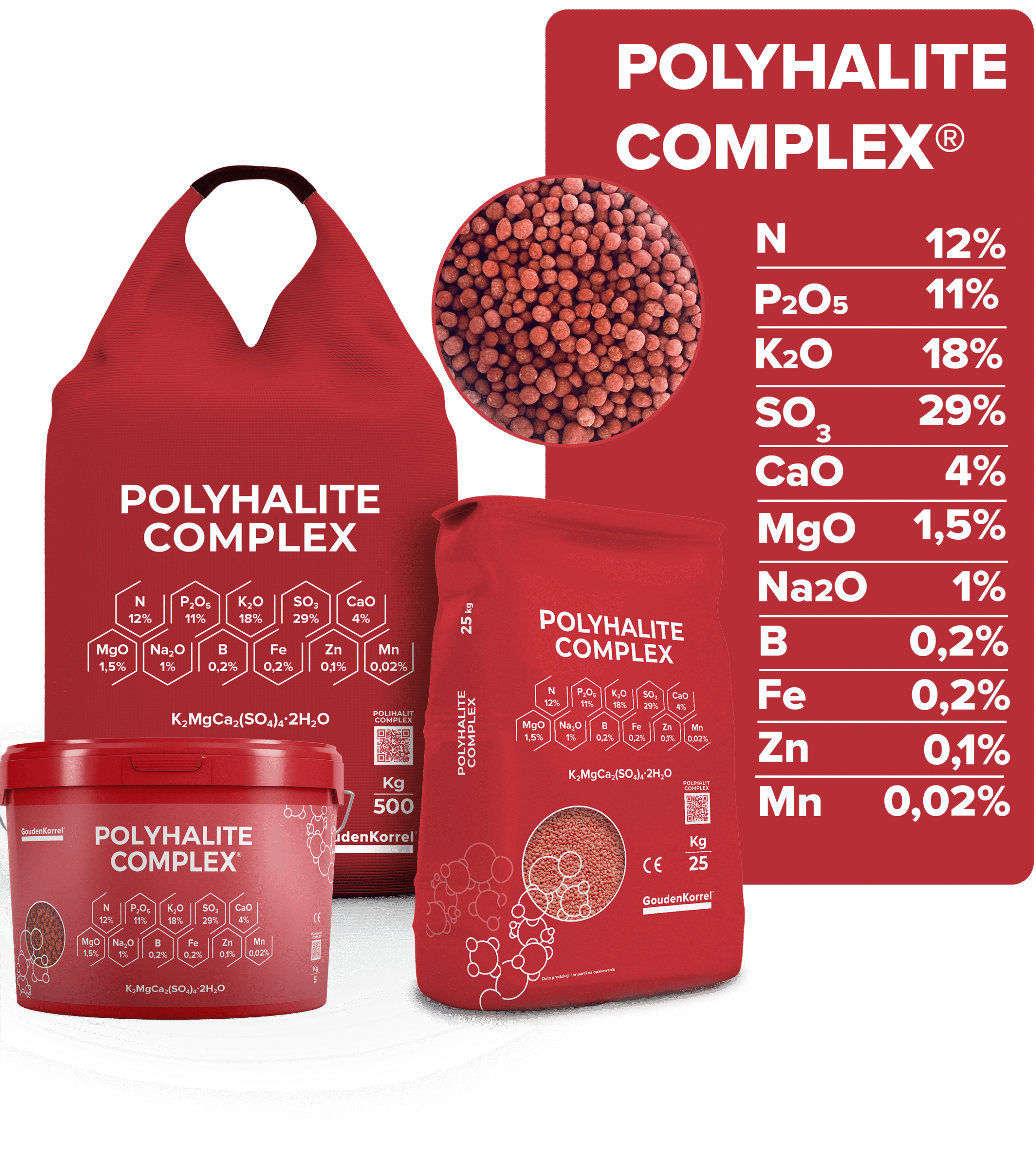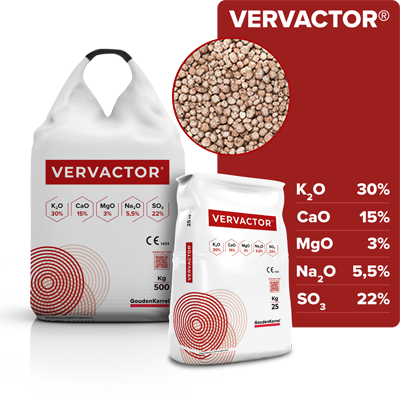Polyhalite
Polyhalite [K2Ca2Mg(SO4)4 · 2H2O], is a natural mineral formed about 260 million years ago by the evaporation of Permian seas. Polyhalite is mined from a layer deposited at a depth of approximately one thousand metres below North Sea level at Boulby Mine (northern England). The raw material contains high concentrations of potassium, sulphur, magnesium, and calcium occurring in the form of easily soluble and rapidly absorbed sulphates. Exclusive producer of polyhalite worldwide is ICL.

*example of a polyhalite particle
POLYHALITE
[K2Ca2Mg(SO4)4 · 2H2O]
Polyhalite – a naturally occurring mineral, derived from a layer of polyhalite rocks, more than 1000m below the level of the North Sea off the coast of North Yorkshire, UK.
Polyhalite mineral contains only sulphate bonds, which is why the fertilizer are safe for plants and the environment!
Polyhalite is a natural mineral source of potassium, calcium, magnesium and sulfur with the lowest carbon footprint on the market, with 0,0337 kg of carbon per kg of mined product, as it only requires mechanical processing.
GoudenKorrel® polyhalite mineral fertilisers are:
- versatile
- natural
- multicomponent
- crop safe
- low chloride content
- low salinity and acidity
Polyhalite mineral fertiliser is a natural power!
By choosing GoudenKorrel® polyhalite mineral fertiliser you remain in symbiosis with nature and do not disturb its harmony. Complex chemical composition of the natural raw material means that it has immense potential for use in ecological farming. Composed of the sulphates of potassium, magnesium and calcium, the raw material, due to the use of G2D Nodens Technology™, is gradually dissolved and readily available, providing several ingredients at the same time. This is the best solution if you are looking for natural power.
Only GoudenKorrel® unleashes the power of polyhalite!
We are pioneers in unlocking the full potential of polyhalite. Its beneficial properties are obvious, but only the technology we use allows us to exploit 100% of the potential of this material. GoudenKorrel®, in contrast to other polyhalite-based formulations, is at the forefront of the dissolution process rate and therefore of soil reaction. This is made possible by the G2D Nodens Technology™ used in Belenus® and Vervactor® fertilisers, which allows the gradual release of nutrients to be activated and optimises the fertiliser’s performance.

Unique technological process is a two-stage process. In the first stage, the crystal structure of polyhalite, which ‘binds’ the desired sulphates, is broken down. Only the raw material treated in this way undergoes further processing and finally acquires the form of fully reactive granules, perfect in their form for full penetration into the soil. Other formulations based on polyhalite can only be compared to the raw material of Belenus® and Vervactor® fertilisers, which is the start of their production process. The method we use means that the GoudenKorrel® line fertilisers almost double the potency of polyhalite. We will not tell you that we are the only ones who recognise the power contained in polyhalite, but we are the only ones who start where others end!
GoudenKorrel® means flexibility!
It is up to you to decide when the best time is to support. The polyhalite mineral fertilisers of the GoudenKorrel® line can be applied – depending on the needs of your crop – either pre-sowing (6-8 days before sowing) or post-sowing, at the latest 2 weeks before the expected start of the winter crop vegetation. Also noteworthy is the fact that our fertilisers have a vast range of compatibility with other formulations. This way, you do not have to limit your activities and can take full advantage of the entire spectrum of possibilities.





